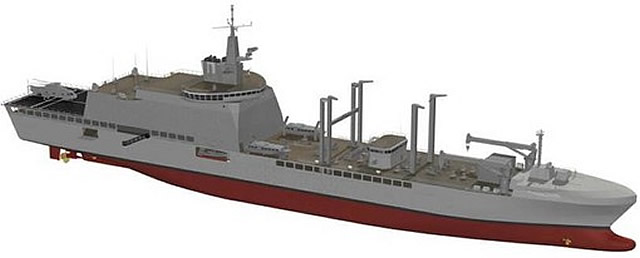Breaking news
Fincantieri and Finmeccanica will renew the Italian Navy's fleet with PPA, LSS and LHD.
| 2015
 The
Pattugliatori Polivalenti d’Altura - PPA The
Pattugliatori Polivalenti d’Altura - PPA |
|||
In general,
this multi-year program for the renewal of the Navy’s fleet (known
as the "Defence Act") will employ a total funding of 5.4 billion
euros and foresees the construction, in addition to the aforementioned
units, of one transport and landing unit (LHD) through a public contract
with the Italian Ministry of Defence currently being finalized. In particular: • one logistic support unit (LSS or Logistic Support Ship) • six patrol vessels (PPA, or Multipurpose Offshore Patrol Ship) and four more in option • one transport and landing unit (LHD or Landing Helicopter Dock) The fundamental characteristic common to all three classes of ships is their high level of innovation providing them with a considerable degree of efficiency and flexibility in serving different mission profiles. In particular, these are dual use vessels, meaning that they may be used for both standard military purposes and for civil protection and rescue at sea operations, and they also have a low environmental impact thanks to a state-of-the-art auxiliary propulsion system generating a low level of pollution emissions (electric engines) and biological waste control system. |
|||
 The
Logistic Support Ship - LSS The
Logistic Support Ship - LSS |
|||
LSS
– Logistic Support Ship The LSS is a vessel that provides logistics support to the fleet, endowed with hospital and healthcare capabilities thanks to the presence of a fully equipped hospital, complete with operating rooms, radiology and analysis rooms, a dentist’s office and hospital rooms capable of hosting up to 12 seriously injured patients. The ship is capable of combining capacity to transport and transfer to other transport vessels used for liquids (diesel fuel, jet fuel, fresh water) and solids (emergency spare parts, food and ammunitions) and to perform at sea repairs and maintenance work for other vessels. The defense systems are limited to the capacity of command and control in tactical scenarios, communications and dissuasive, non-lethal defense systems. The vessel is also capable of embarking more complex defence systems and becoming an intelligence and electronic war platform. • 165 meters long • speed of 20 knots • 200 persons including crew and specialists • 4 replenishment station abeam and 1 astern • Capacity to supply drinking water to land • Capacity to provide electricity to land with 2500 kw of power • Possibility of embarking up to 8 residential and healthcare modules • Capacity to perform rescues at sea, through recovery and seabed operations (the ship is equipped with an 30 tons offshore stabilized crane stabilized) • base for rescue operations through helicopters and special vessels Delivery is scheduled in 2019. The consortium (RTI) was established according to the cooperation agreement in the field of naval vessels construction signed last October between Fincantieri and Finmeccanica. Pursuant to the agreement, Fincantieri acts as a sole interface to the client, while allowing to enhance Finmeccanica’s products range in the naval field. In addition to building the vessels at its shipyards, Fincantieri will provide support over the lifecycle of the vessels in the first ten years, through the supply of logistic services (training courses, spare parts, technical documentation) during the construction of the vessels and of ISS or In Service Support (maintenance services), carried out during post-delivery operations, as well as components and naval machinery produced by the Marine Systems and Components Unit, such as shaft lines, wheelhouse, maneuvering propellers, fin stabilizers and other handling systems, the automation system and a part of the special supplies for PPAs delivered by the subsidiary Seastema S.p.A. Finmeccanica, through Selex ES, will act as prime contractor for all of the new naval units' combat systems. Selex ES will provide sensors, such as the new multi-functional radar, and will also take on responsibility for all subsystems, included those provided by OTO Melara, WASS, MBDA and Elettronica. In addition, Selex ES and Fincantieri will develop together the innovative “Cockpit” system. This system will, for the first time ever, allow for the integrated management of sailing and combat system operations, using augmented reality to allow both functions to be effectively managed with fewer operators. |
|||


























